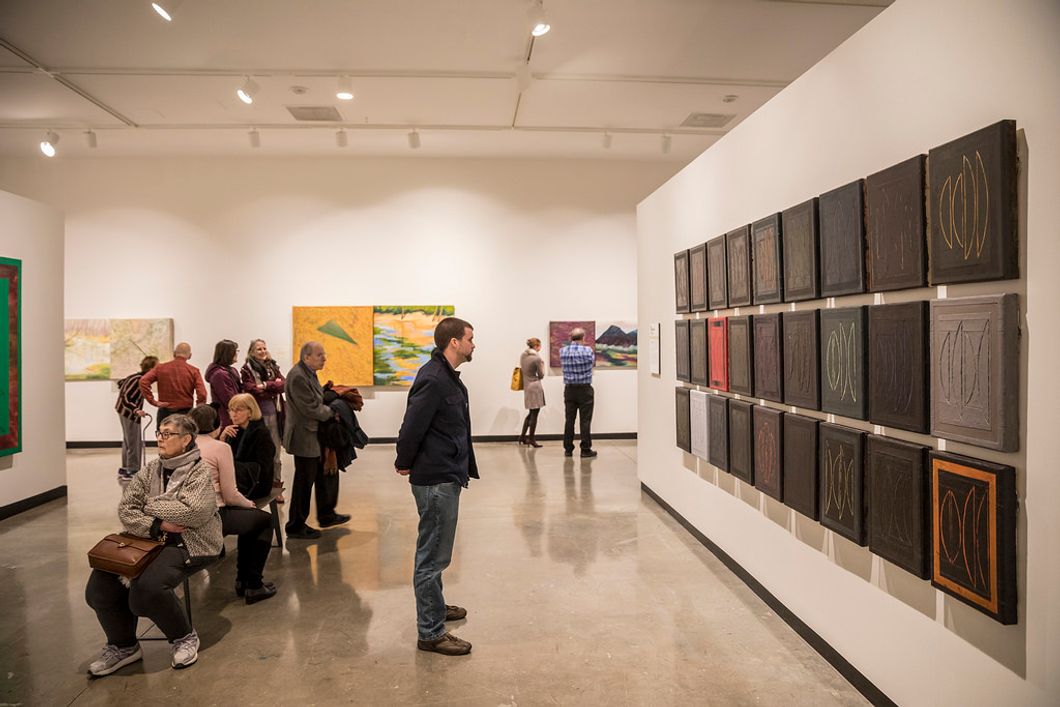As I chatted my way through an interview early Saturday morning, I was asked such a simple, yet thought-provoking, question. The interviewer asked me where I looked to for inspiration. Despite majoring in a field that revolves around finding constant sources of inspiration, I found myself stumped. After pausing for a quick moment, I settled on "history." I pride myself on being a self-proclaimed history geek, so the answer was 100% truthful. The answer doesn't matter so much as the fact that I found myself unexpectedly taken aback by the question.
In hindsight, I could've spent two hours discussing that question, alone. Maybe, that's where my problem occurred. With an overabundance of inspiration stemming from every aspect of life, how could it be that anyone, including myself, could ever be uninspired?
I've never been great at decision-making. It's not that I don't know what I want necessarily; it's more about making the "right" decision. As such, I often find myself overwrought with all the potential outcomes from one singular choice. Likewise, perhaps it's not the lack of inspiration, but the surplus, that intimidates us. When people speak of lacking creativity, I think it really may come from a place of being overwhelmed.
This past Monday, I found myself drowning in pools of possibility generated by a creative monsoon. To jump-start our major sewing projects for this semester, we were tasked with creating a "mind map." Mind maps are basically the catalyst of brainstorming and begin with a single word, such as a place, a person, or a thing. From this one word, the individual is tasked with generating more words and ideas that relate to the initial word. Mind Maps work very simply, yet they result in an almost endless web of ideas.
Unsure of how I initially felt about "mind mapping," I was quickly engrossed in the process. So much so, that I had to spend a great deal of time narrowing down all the ideas I'd generated from a singular word. At a certain point, my brain was on overload, and it almost seemed counterproductive with all of the refining and culling I'd have to do. The final instruction of the exercise was to draw out three words that would encapsulate the final products of our projects. Within the span of about two hours, I'd gone from no ideas to 20 odd words in a web, and finally, to three, solid foundational concepts.
I felt creatively motivated, but I also felt guided and organized. Even with all the inspiration Google was bombarding me with, I was able to sift through and pinpoint the most relevant material. In a way, I think this process is what "non-creatives" need in order to find their innate creative spark. It's not that these people don't have the imaginative capacity to create; it's that they need guidance to channel their potential.
Creative work, whether it's professional or for leisure purposes, can often seem overbearing and insurmountable. Despite the common belief that we're imaginatively inadequate, we may just be lost. We're good at creating mazes of ideas within our minds, but we often find ourselves struggling to navigate them. I believe finding outlets, like Mind Mapping, to channel our thoughts is the key to unlocking our creative potential.






 The minimum wage is not a living wage.
StableDiffusion
The minimum wage is not a living wage.
StableDiffusion
 influential nations
StableDiffusion
influential nations
StableDiffusion












